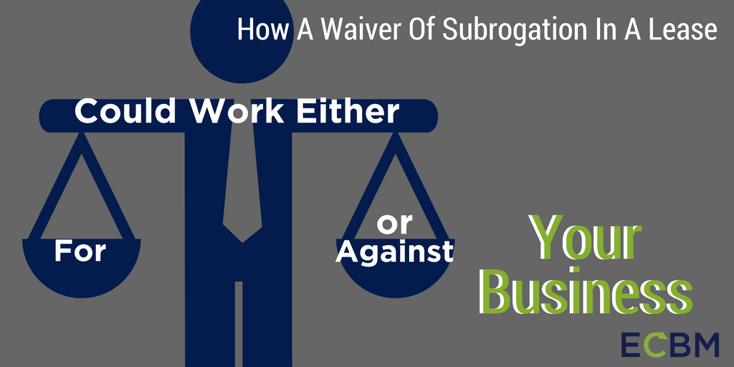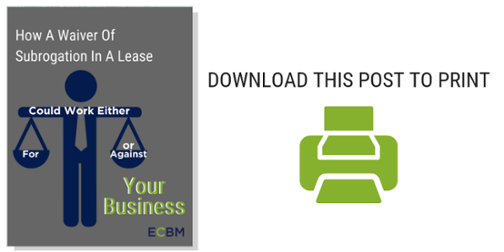
.Often times, companies are more focused on the more fundamental aspects of a contract, like price and timelines for completion of tasks. They may overlook some terms that seem more like blanket or form language- but this is where the phrase "the devil is in the details" comes to mind.
Contract Terms That May Be Overlooked Deserve A Second Look
Scott Nuelle, VP ECBM warns, “these terms can drastically alter the outcome when things go wrong. While some terms can affect the right to sue and litigation procedures, others can drastically affect the relationship between a party to the contract and their insurance provider. Most notably, some contracts include waiver of subrogation provisions, and a company should definitely not sign a contract containing such a provision without understanding what it means or how it may affect their insurance coverage.” Read More: Avoid Contract Fatigue- Negotiate To Maximize Arbitration's Benefits
What is Subrogation?
Subrogation is a legal concept that allows one party to take the place of another party in filing and pursuing a lawsuit. So instead of Party A suing Party B, Party C sues Party B with the same claims and rights to damages as Party A. The term most commonly applies to insurers. If an insurance company pays out a claim for property damage under a policy to an insured, they gain the right to sue the party who caused the property damage. Read More: Will Your Insurance Policy Cover Risks From Indemnification Clauses?
Recovering From A Loss Under One Of These Contracts
For example, imagine a scenario wherein a company owning a piece of property contracts with a construction company to expand a building on the property. During the expansion, a negligent act by the construction company damages the existing building. The company that owns the building may file a claim for damages and have the claim paid by their property insurance company, only to have the property insurance company sue the construction company to recover their losses.
Limiting Lawsuits With Waivers Of Subrogation
Waivers of subrogation prevent insurance companies from suing on behalf of the insured in situations like this. Waivers of subrogation have the intent of limiting lawsuits between the parties to a contract and simply requiring their respective insurance companies to pay for any losses between the parties without any consideration of fault. Courts have upheld and enforced waiver of subrogation provisions in these contracts.
There Are Times When A Waiver Is An Appropriate Action
Leases will commonly contain clauses which provide for waivers on property loss of the landlord and tenant caused by the other party. These terms eliminate unnecessary litigation between parties.
When To Watch Out
However, construction contracts and other service contracts can ask for waivers as respects employee injuries or other damages. These conditions should not be entered into lightly.
Companies confronted with waiver of subrogation clauses in potential contracts have several options.
- They can attempt to negotiate regarding the use of the clause.
- They can inform their insurance company and request an endorsement that allows for the waiver of subrogation.
Nuelle says, “To navigate these issues, companies must first be aware of them and understand them.” These decisions can be expensive if handled improperly, so businesses should first consult with their attorneys and their insurance brokerage to ensure proper attention is paid to these risks.


